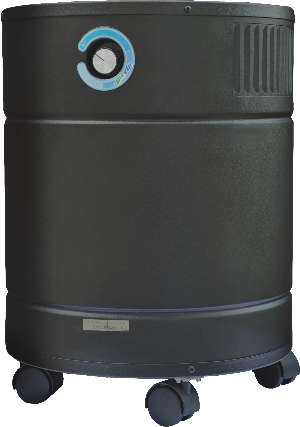Air Quality
Air quality is a key issue for people who suffer from allergies and asthma. When exposed to ultrafine airborne particles, the airways of the lungs can become inflammed. The symptoms are different for different people and can be minor or quite severe. Symptoms may occur occasionally, such as during exercise, or the symptoms can be persistent.
Common Symptoms of Allergies and Asthma
- Whistling or wheezing
- Trouble sleeping due to coughing
- Painful or tight chest
- Shortness of breath
Worsening Symptoms
Exercising when the air is cold and dry can make asthma worse. As well, allergies such as to excrement from household pests, pet dander and pollen can trigger asthma. Exposure at work to chemical, gas and dust may increase your chances of a more severe asthma attack. It i important to understand the triggers for your allergies and asthma.
Our Allergy and Asthma Air Purifiers: Select by Filtration Depth and Unit Size
- Super HEPA filter that removes up to 99.99% of fine airborne allergens
- A robust industrial design allows for 24/7operation.
- No digital parts to set or repair, just a simple plug and play design for worry-free operation.
- UV filtration available for the enhanced filtration of airborne viruses and bacteria
-
- AirMedic Pro 5 Series
AirMedic Pro 5 Air Purifier
- $754.74 – $1,069.74
- Select options
-
- AirMedic Pro 5 Series
AirMedic Pro 5 Plus Air Purifier
- $880.74 – $1,195.74
- Select options
-
- AirMedic Pro 6 Series
AirMedic Pro 6 Air Purifier
- $880.74 – $1,132.74
- Select options
-
- AirMedic Pro 6 Series
AirMedic Pro 6 Plus Air Purifier
- $1,006.74 – $1,321.74
- Select options
How Does an AllerAir Air Purifier Work?


An AllerAir air purifier cleans your indoor air in several steps:
- A pre-filter removes larger particles
- The HEPA traps 99.97% of fine airborne allergens
- The deep-bed activated carbon filter adsorbs airborne chemicals, gases and odors
While HEPA filters are fairly standard, activated carbon filters can vary in quality and effectiveness. Activated carbon works like a sponge to soak up airborne chemicals, gases and odors. The capacity of that “sponge” depends on its depth and size. The more activated carbon used in an air purifier, the more chemicals, gases and odors it can adsorb.




